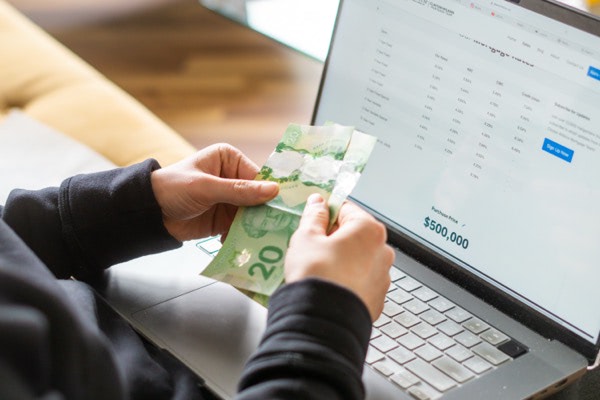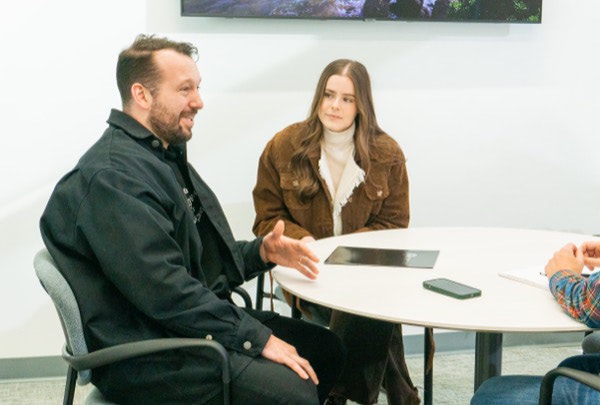You have secured your mortgage approval, but is it what you can truly afford? Here’s what you need to know.

5 tips to help you save for your down payment
Ways to save for your down payment
Our way of living has switched from simply enjoying the moment to living a very structured life. We go to our nine to five job from Monday to Friday. It pays okay. We have enough to pay our bills and that’s about it. Our weekends are spent completing all those adult chores that we put off during the week. Once that’s done, we may get an hour or two to relax and watch a show on Netflix. Rarely do we take time to really do something for ourselves. We pay our bills and tend to chores, but we never “pay ourselves.”
The dream is to own a house one day, but the thought of saving up enough money for a down payment seems out of reach. After the bills, there is very little money left over to put aside for a down payment. However, there are some pretty easy ways to shift that mindset and save for your down payment.
1. Pay yourself first
The most important part of saving money for a down payment is to remember to pay yourself. We work long days for our boss and company. We then take that money to pay off our credit card debt and rent each month. It rarely crosses our minds that we should give ourselves credit for our hard work. Each pay cheque, pay yourself first. Calculate what one hour of pay is for you from your job. Calculate that one hour of pay, by the number of days on each pay cheque. Take that amount and put it into a savings account for you. For example, an hour of pay is $10 and there are 10 days on each pay cheque. Approximately $100 should be going into a savings account each pay period for yourself. Dedicate the savings account to your goal at the time. For a down payment, use the account exclusively to save funds for a down payment. Commit to never taking out funds from it for anything besides the goal you are saving for.
2. Eliminate “can live without” luxuries
We all have a guilty pleasure. Some of us spend $5 a day on a coffee, while others spend $15 for a pack of cigarettes. Whether we like it or not, we all have an item that is a “luxury item.” We could live without it, but we are kind of reliant on it. Try taking the money that you invest in these luxury items and save it for a down payment. That $5 coffee may sound necessary and nice at the time, but a new house would provide satisfaction for a longer period of time. Maybe the coffee is something you can’t live without but think about whether those purchases are always necessary. An easy way to calculate whether an item is worth the price tag or not is to calculate the annual cost. Take that $5 and multiply it by 365 and see if it is still worth it to you. That coffee seems like a small amount today, but $1,825 is a nice chunk of cash.
3. Reduce your credit card debt
Higher interest debt can be a major waste of your hard-earned dough. When we let debt sit and accrue interest, we are making it a lot harder to save. Higher interest debt means spending more money paying off that bill. Leaving debt open can slow down the progress you’ve made on saving for a down payment. When you have the money available, pay off those credit cards and other forms of higher interest debt. When you pay off the balance, move onto the next highest interest debt. Keep moving on until you reduce your overall debt. This will set you up for the long run and allow you to save more money for a down payment.
4. Borrow from your RRSP
The Home Buyers’ Plan allows home buyers to borrow funds from their RRSP to finance the down payment. Homebuyers can use up to $35,000 from their RRSP to finance the down payment. Couples can combine this to a total of $70,000. This is a nontaxable withdrawal as long as it is repaid. The funds borrowed must be repaid within 15 years. This can help home buyers save up enough money to make a 20% down payment on a house. The 20 per cent down payment would allow buyers to avoid the mortgage default insurance. If you plan this accordingly, you can save money on your taxes by contributing to your RRSP. When you’re ready to make an offer on a home, you can take advantage of your planning!
5. Get a side hustle (new income stream)
If you have the ability and time, it might be time to think about a side hustle. We all have a special skill that we can put to work. If you have a knack for helping kids, offer tutoring kids in the neighbourhood. Tutoring brings in some extra cash and exercises your brain. If you live in a neighbourhood with pet lovers, offer to take care of the neighbourhood animals the next time the owner goes out of town. Tutoring and pet sitting are great and easy ways to pull in funds for a down payment. A temporary second job can make serious contributions to savings for a down payment. Sacrificing that show on Netflix to tutor for an hour, can put you one step closer to buying your dream home in the near future.
We all dream of owning a home. Many of us are conditioned to believe that owning a home is out of reach for us. We think it is too expensive. We are barely making it by, paying our monthly bills. By retraining our mindset, we will soon learn to pay ourselves first. Automatically putting money aside each month in a separate account is the fastest way to save for a down payment. Paying off higher interest debt and eliminating luxury purchases will speed up the process of saving. When you’re thinking about buying your first home and need help coming up with a plan, give us a call at Clinton Wilkins Mortgage Team! You can give us a call at 902-482-2770 or get in touch with us here!


